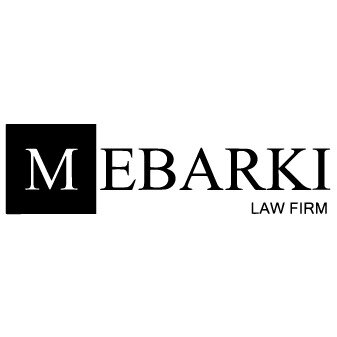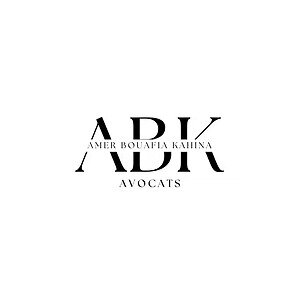Best Sanctions & Export Controls Lawyers in Algiers
Share your needs with us, get contacted by law firms.
Free. Takes 2 min.
List of the best lawyers in Algiers, Algeria
About Sanctions & Export Controls Law in Algiers, Algeria
Sanctions and export controls are critical elements of international trade compliance in Algiers, Algeria. These laws are designed to regulate and monitor the export, transit, and re-export of specific goods, technologies, and services. They also address compliance with international sanctions, whether imposed by the United Nations or other international bodies. Companies and individuals involved in international transactions must ensure they do not contravene these regulations, which could result in severe legal and financial penalties.
Why You May Need a Lawyer
There are multiple situations in which a lawyer specializing in sanctions and export controls can be invaluable in Algiers, Algeria. Common scenarios include:
- Exporting goods or technologies to countries subject to international sanctions
- Engagement in business with foreign individuals or entities that may be listed on sanction lists
- Receiving inquiries or audits from Algerian or international authorities regarding export activities
- Uncertainty about the classification of goods and technologies for export licensing purposes
- Risk of inadvertently violating embargoes or restricted party transactions
- Need for guidance on compliance policies and internal procedures to mitigate legal risks
- Facing actual or threatened enforcement actions by local or international regulators
Local Laws Overview
Algeria’s legal framework for sanctions and export controls is influenced by both national legislation and its commitment to international agreements. The key aspects include:
- Export Restrictions: Algeria regulates the export and re-export of goods, especially those that could be used for military purposes, dual-use items, sensitive technologies, and strategically important resources such as hydrocarbons.
- Compliance with International Sanctions: Algeria implements United Nations Security Council resolutions related to sanctions and controls, which may target specific countries, organizations, or individuals.
- Licensing and Permitting: Certain goods and materials require prior authorization from government regulators, especially the Ministry of Commerce and the Ministry of Foreign Affairs.
- Customs Enforcement: The Algerian customs authority actively monitors compliance with export laws and any violation can result in seizure of goods, fines, or criminal prosecution.
- Penalties and Consequences: Failure to comply with export controls and sanctions laws can result in heavy fines, business license revocation, reputational damage, and even imprisonment in severe cases.
Frequently Asked Questions
What are export controls?
Export controls are legal measures that regulate the distribution of certain goods, services, and technologies to foreign countries or entities. Their purpose is to protect national security, foreign policy objectives, and prevent the proliferation of dangerous items.
Who enforces sanctions and export controls in Algeria?
These laws are primarily enforced by the Customs Authority, the Ministry of Commerce, the Ministry of Foreign Affairs, and law enforcement agencies in Algeria.
What items are most commonly subject to export controls?
Typically, items subject to control include arms and defense equipment, dual-use technologies, certain industrial equipment, chemicals, and products or materials linked to nuclear, biological, or chemical weapons.
How do I know if my business needs an export license?
If you intend to export goods or technologies that are listed as controlled under Algerian law or international agreements that Algeria is a party to, you will need to apply for an export license from the appropriate authority.
What are sanctions and who imposes them?
Sanctions are legal prohibitions or restrictions imposed on countries, businesses, or individuals, usually for reasons related to security or foreign policy. In Algeria, sanctions may be imposed by the government itself or in implementation of United Nations Security Council decisions.
What happens if I accidentally violate export control laws?
Even unintentional violations can lead to significant penalties. Penalties may include fines, loss of business licenses, or criminal charges. It is important to seek legal advice as soon as a potential violation is identified.
Can Algerian companies export to sanctioned countries?
In most cases, it is illegal for Algerian companies to export goods, services, or technologies to countries or entities subject to international or national sanctions, unless a specific exemption or license is granted.
What types of sanctions are enforced in Algeria?
Algeria enforces United Nations multilateral sanctions, as well as their own national measures. These typically include arms embargoes, trade restrictions, asset freezes, and travel bans.
How long do sanctions last?
Sanctions may be temporary or indefinite. Their duration usually depends on the political or security situation that justified their imposition. The government may update the applicable lists periodically.
Where can I report suspected violations of export controls or sanctions?
Violations can be reported to the Algerian customs authority or relevant ministries. Whistleblowers or companies seeking voluntary disclosure should seek legal advice before making any reports.
Additional Resources
For further information or assistance regarding sanctions and export controls in Algiers, Algeria, you may consult these resources:
- Algerian Customs Authority (Direction Générale des Douanes)
- Ministry of Commerce (Ministère du Commerce)
- Ministry of Foreign Affairs (Ministère des Affaires Étrangères)
- Relevant United Nations Security Council Resolutions
- Local chambers of commerce and industry organizations
- Legal professional associations
Next Steps
If you believe you might need legal assistance with sanctions and export controls in Algiers, Algeria, consider the following actions:
- Document all relevant transactions, communications, and export activities
- Consult a lawyer with experience in international trade, export controls, and sanctions law
- Review your company’s internal compliance policies and procedures
- Stay updated on changes to domestic and international regulations
- Engage in training for staff to increase awareness of compliance requirements
- Contact the appropriate government authorities if you need official guidance or clarification
Legal compliance in this area can be complex and the consequences of missteps are significant. Obtaining professional legal advice is always recommended to protect your interests and ensure your activities remain within the bounds of Algerian and international law.
Lawzana helps you find the best lawyers and law firms in Algiers through a curated and pre-screened list of qualified legal professionals. Our platform offers rankings and detailed profiles of attorneys and law firms, allowing you to compare based on practice areas, including Sanctions & Export Controls, experience, and client feedback.
Each profile includes a description of the firm's areas of practice, client reviews, team members and partners, year of establishment, spoken languages, office locations, contact information, social media presence, and any published articles or resources. Most firms on our platform speak English and are experienced in both local and international legal matters.
Get a quote from top-rated law firms in Algiers, Algeria — quickly, securely, and without unnecessary hassle.
Disclaimer:
The information provided on this page is for general informational purposes only and does not constitute legal advice. While we strive to ensure the accuracy and relevance of the content, legal information may change over time, and interpretations of the law can vary. You should always consult with a qualified legal professional for advice specific to your situation.
We disclaim all liability for actions taken or not taken based on the content of this page. If you believe any information is incorrect or outdated, please contact us, and we will review and update it where appropriate.











